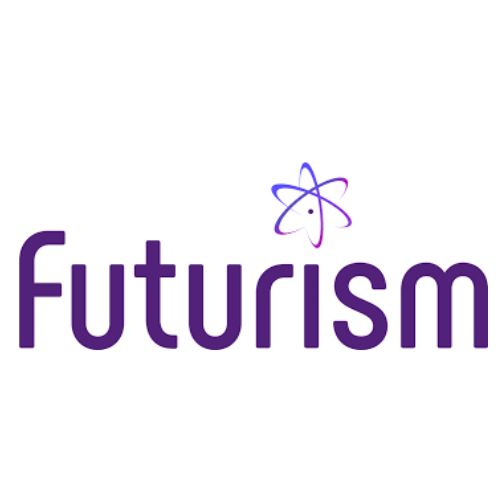
Top Deep Learning Consulting Companies
The global Deep Learning Market was valued at USD 85.02 billion in 2024 and is projected to reach USD 811.63 billion by 2032. Source: Deep Learning Market Growth Drivers & Forecasts 2024-2031 – SkyQuest Technology.
Top Deep Learning Consulting Companies specialize in building intelligent systems using artificial neural networks that mimic the human brain. These firms offer services such as computer vision, natural language processing (NLP), predictive analytics, and custom model development for businesses across industries like healthcare, finance, manufacturing, and retail. By leveraging frameworks like TensorFlow, PyTorch, and Keras, these experts help organizations automate complex tasks, uncover data-driven insights, and deploy scalable AI solutions. Whether you need deep learning for facial recognition, autonomous vehicles, fraud detection, or speech analysis, these consultants bring advanced AI capabilities to your digital transformation journey.
List of the Best Deep Learning Consulting Agencies | Top Deep Learning Consulting Companies in the World

-
Employees: 501 to 1000
-
Min. Project amount: $1,000+
-
Country: Indore, India

Flatirons
-
Employees: 10 to 49
-
Min. Project amount: $50,000+
-
Country: Boulder, CO

Eris360
-
Employees: 11 to 50
-
Min. Project amount: $10,000
-
Country: NY, USA

NirvanaXp Inc.
-
Employees: 51-100
-
Min. Project amount: $25000
-
Country: Henderson, NV

Designers X
-
Employees: 11 to 50
-
Min. Project amount: $10,000+
-
Country: Florida, United States
Discountcodez
-
Employees: 51 to 100
-
Country: Bedfordshire, United Kingdom

MaxelTracker
-
Employees: 51 to 200
-
Country: Canada

Futurism Technologies
-
Employees: 501 to 1000
-
Min. Project amount: $25000
-
Country: USA, Germany, UAE, India, Australia

OREL IT
-
Employees: 1000+
-
Min. Project amount: $ 25000
-
Country: USA
AssetfinX
-
Employees: 51-100
-
Min. Project amount: $ 25000
-
Country: India
1.What Do Deep Learning Consulting Companies Do?
Deep learning consulting firms help businesses design, build, and implement AI models using deep neural networks. Their services often include:
Developing and training deep learning models
Building solutions for image recognition, NLP, and time-series forecasting
Optimizing model performance and accuracy
Integrating AI into existing systems
These companies enable organizations to leverage large datasets for intelligent automation, prediction, and decision-making.
Deep learning consulting companies help businesses harness the power of neural networks and advanced AI to solve complex problems, uncover patterns, and make intelligent decisions from large volumes of data. These companies provide end-to-end services — from strategy and model development to deployment and maintenance — customized for specific business needs.
1.1 AI Strategy and Feasibility Assessment
Before diving into development, deep learning consultants work closely with clients to:
Understand business goals and pain points
Identify opportunities where deep learning can add value
Analyze available data and resources
Determine the right deep learning approach (e.g., supervised, unsupervised, reinforcement learning)
This ensures the solution is both technically and economically viable.
1.2 Model Design and Architecture Development
Once goals are clear, consultants build customized deep neural networks using architectures like:
Convolutional Neural Networks (CNNs) for image and video processing
Recurrent Neural Networks (RNNs) and LSTMs for time-series or language data
Transformer-based models for natural language understanding
GANs (Generative Adversarial Networks) for synthetic data or image generation
They choose architectures based on the nature of the data and problem.
1.3 Model Training and Optimization
Using powerful computing infrastructure and large datasets, the consultants:
Train deep learning models using GPUs or cloud platforms
Fine-tune hyperparameters for accuracy and efficiency
Apply techniques like data augmentation, regularization, and transfer learning
Validate model performance through testing and cross-validation
This step ensures high accuracy, speed, and robustness.
1.4 Integration and Deployment
Deep learning solutions are integrated into your existing tech ecosystem:
Embedded into software or mobile applications
Deployed via APIs or edge devices
Scaled on cloud platforms like AWS, Azure, or GCP
Set up with MLOps pipelines for CI/CD, versioning, and monitoring
Consultants ensure the model runs smoothly in real-world environments.
1.5 Post-Deployment Support and Maintenance
Once deployed, models require:
Ongoing monitoring to prevent drift or degradation
Retraining with new data
Performance tuning and updates
Continuous support for bug fixes and infrastructure upgrades
Deep learning consultants often offer SLAs to ensure long-term reliability.
In Summary
Deep learning consulting companies serve as AI innovation partners. They transform raw data into powerful insights and intelligent automation — from designing models to deploying real-time systems — helping businesses unlock new levels of efficiency, productivity, and competitive edge.
2.What Industries Benefit Most from Deep Learning Consulting?
Deep learning solutions are applicable across various sectors:
Healthcare: Medical image analysis, diagnostics, drug discovery
Finance: Fraud detection, algorithmic trading, risk modeling
Retail: Customer behavior prediction, visual search, inventory optimization
Manufacturing: Predictive maintenance, quality control via computer vision
Automotive: Autonomous driving and sensor data interpretation
Consulting firms tailor deep learning strategies to solve unique problems in each industry.
Deep learning consulting has revolutionized multiple industries by enabling machines to learn complex patterns from vast amounts of data. These intelligent systems drive automation, enhance decision-making, and unlock new innovations. Here’s how different sectors benefit:
1. Healthcare & Life Sciences
Deep learning is transforming diagnostics, treatment, and research.
Key applications include:
Medical image analysis (e.g., detecting tumors, fractures, anomalies)
Drug discovery and genomics
Predictive patient analytics and disease risk modeling
Clinical decision support and personalized medicine
Why it matters: Increases diagnostic accuracy, reduces workload for medical professionals, and improves patient outcomes.
2. Finance & Insurance
The finance sector relies on deep learning to improve security, efficiency, and decision-making.
Use cases include:
Fraud detection in real time
Credit scoring and risk assessment
Algorithmic trading and market prediction
Automated customer service and document processing
Why it matters: Helps mitigate financial risk, detect anomalies, and streamline services.
3. Retail & E-Commerce
Retailers use deep learning to understand consumer behavior and personalize experiences.
Common applications:
Personalized product recommendations
Visual search (e.g., find similar items via images)
Demand forecasting and dynamic pricing
Inventory and supply chain optimization
Why it matters: Enhances customer satisfaction and increases sales efficiency.
4. Manufacturing & Industrial Automation
Deep learning enables smarter operations and higher-quality production.
Use cases:
Predictive maintenance of machinery
Quality control via computer vision
Anomaly detection on the production line
Robotics and autonomous systems
Why it matters: Reduces downtime, improves product quality, and cuts operational costs.
5. Automotive & Transportation
From autonomous vehicles to logistics, deep learning is central to innovation.
Applications include:
Self-driving cars (object detection, lane tracking)
Route optimization and traffic prediction
In-vehicle voice assistants and driver monitoring
Predictive fleet maintenance
Why it matters: Increases safety, efficiency, and enables the future of mobility.
6. Media & Entertainment
Deep learning powers content creation, personalization, and content moderation.
Examples include:
Video and audio recognition
AI-powered content recommendations
Deepfake detection and synthetic media creation
Automated tagging and transcription
Why it matters: Enhances user engagement and streamlines production workflows.
7. Agriculture
Precision agriculture uses deep learning for smarter, sustainable farming.
Use cases:
Crop health monitoring via drones and imagery
Yield prediction and soil analysis
Livestock tracking
Automated irrigation and pest control
Why it matters: Increases yield while reducing resource consumption.
✅ In Summary
Industries that deal with large-scale, complex, or unstructured data—such as images, text, or time-series signals—benefit the most from deep learning consulting. These solutions bring measurable improvements in efficiency, accuracy, personalization, and automation across sectors.
Let me know if you’d like a visual chart or downloadable guide summarizing this by industry!
3.What Technologies Do Deep Learning Consultants Use?
Top firms rely on industry-standard tools and frameworks:
Frameworks: TensorFlow, PyTorch, Keras, Theano
Languages: Python, R, Julia
Platforms: AWS, Google Cloud, Azure for scalable training and deployment
Models: CNNs, RNNs, LSTMs, GANs, Transformers
They combine these with data engineering and MLOps to build reliable, production-grade AI systems.
Deep learning consultants rely on a powerful stack of frameworks, programming languages, hardware, and cloud tools to build intelligent, scalable, and production-ready AI systems. Their tech stack allows them to design, train, optimize, and deploy complex neural networks tailored to business needs.
1. Deep Learning Frameworks
These are the core libraries used to design and train neural networks:
TensorFlow – Widely used by enterprises for large-scale model training and deployment
PyTorch – Favored for research and dynamic model building, with growing industry adoption
Keras – High-level API that simplifies building and experimenting with deep learning models
MXNet, Theano, Caffe – Used in specific domains like robotics or edge AI
These tools allow consultants to implement custom architectures like CNNs, RNNs, GANs, and Transformers.
2. Programming Languages
Deep learning consultants typically code in:
Python – The dominant language for AI/ML development due to rich libraries and community support
R – Used in data science-heavy environments, especially for statistical modeling
C++/CUDA – For performance-critical tasks and GPU-level programming
Julia – Sometimes used for high-performance numerical computing in academic or research settings
3. Pretrained Models and APIs
To speed up development and boost performance, consultants often use:
Transformers (e.g., BERT, GPT, ViT, LLaMA) from Hugging Face
Vision models like YOLO, EfficientNet, ResNet for computer vision tasks
Audio models like DeepSpeech and Whisper for speech-to-text
Open-source models or APIs from OpenAI, Google, Facebook AI, and Meta AI
These allow for transfer learning or fine-tuning on specific business datasets.
4. Cloud Platforms and DevOps Tools
To train and deploy models at scale, consultants leverage cloud infrastructure and DevOps:
Cloud platforms: AWS (SageMaker), Google Cloud (Vertex AI), Microsoft Azure (ML Studio)
Containerization: Docker and Kubernetes for scalable deployments
CI/CD Pipelines: MLflow, DVC, or Kubeflow for model versioning and continuous delivery
GPU/TPU support: For accelerated training on NVIDIA or Google TPUs
5. Data Tools and MLOps
Managing data pipelines and model lifecycle is critical:
Data engineering tools: Apache Spark, Airflow, Pandas
MLOps platforms: Weights & Biases, Neptune.ai, or Comet.ml for experiment tracking
Visualization tools: TensorBoard, Matplotlib, Seaborn for performance monitoring
Labeling tools: Labelbox, SuperAnnotate, CVAT for creating high-quality datasets
✅ In Summary
Deep learning consultants use a diverse toolkit combining cutting-edge frameworks, pre-trained models, cloud services, and data tools. Their technology choices depend on the problem domain, data type, scale, and deployment needs, ensuring each solution is optimized for performance, cost, and flexibility.
4.How Can I Choose the Right Deep Learning Consulting Company?
To select the right partner, consider the following:
Technical expertise in your domain (e.g., vision, NLP, signal processing)
Successful case studies and client references
Scalability of solutions across data and infrastructure
Compliance with data privacy and security standards
Ongoing support for optimization, monitoring, and retraining
The best firms not only deliver accurate models but also ensure smooth deployment and measurable ROI.
Choosing the right deep learning consulting firm is essential to successfully implement advanced AI solutions. The ideal partner should align with your goals, understand your data, and offer scalable, secure, and high-performing models. Here’s how to make an informed decision:
1. Define Your Goals and Use Case
Start by clarifying what you want to achieve with deep learning.
Ask yourself:
Are you automating a process like image recognition or language understanding?
Do you need predictive analytics or real-time decision-making?
Will the solution scale across departments or customer touchpoints?
Clear objectives help you identify firms with the right focus and capabilities.
2. Assess Technical Expertise and Tools
Evaluate the company’s proficiency with deep learning technologies. Look for:
Experience with frameworks like TensorFlow, PyTorch, and Keras
Skills in working with CNNs, RNNs, GANs, Transformers, etc.
Fluency in Python, data engineering, and cloud computing (AWS, GCP, Azure)
Familiarity with MLOps, for scalable deployment and model monitoring
Ask about their approach to training, testing, and optimizing models.
3. Review Case Studies and Industry Experience
Choose a firm with a proven track record. Look for:
Case studies in your industry (healthcare, finance, manufacturing, etc.)
Examples of solving similar technical challenges
Real-world impact: improved accuracy, faster processing, better ROI
Testimonials from past clients
This shows they can deliver results in real-world scenarios, not just research environments.
4. Evaluate Communication and Collaboration
Strong communication is key in AI projects. Make sure they:
Understand your business language and goals
Offer clear project timelines, milestones, and reporting
Are responsive and collaborative throughout the development lifecycle
Provide documentation and knowledge transfer to your in-house team
Good consultants become strategic partners, not just vendors.
5. Consider Data Security, Ethics, and Compliance
Deep learning often involves sensitive or proprietary data.
Ensure the company:
Follows data privacy laws (e.g., GDPR, HIPAA)
Offers secure cloud or on-premise model deployment
Prioritizes bias mitigation, explainability, and ethical AI practices
Provides NDAs, access controls, and model transparency
Ethical and secure AI is not optional—it’s essential.
✅ In Summary
To choose the right deep learning consulting company:
Match their technical strengths to your use case
Verify their real-world success through case studies
Prioritize ethical practices and data security
Choose a partner who communicates clearly and works collaboratively
The right firm won’t just build a model—they’ll help strategize, implement, and evolve a sustainable AI solution that drives business growth.



